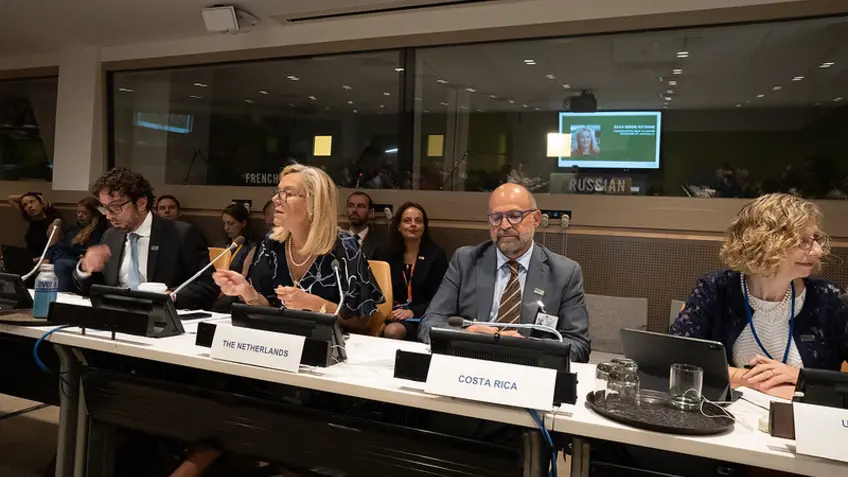NDC Partnership Co-Chairs Announce Major Milestone as More Than Half of the World’s Countries Join the NDC Partnership
Madrid, Spain (December 3, 2019) — As parties from around the globe meet in Madrid for the United Nations Climate Change Conference (COP25) from 2-13 December, the Co-Chairs of the NDC Partnership announced that its membership has reached a major milestone; the Partnership now includes more than half of the world’s countries in addition to major international institutions and non-state actors. With 160+ members, the Partnership is open to countries and organizations that are committed to ambitious implementation of nationally determined contributions (NDCs) under the Paris Agreement and the 2030 Sustainable Development Goals.
"We are seeing countries rise to the challenge of combatting climate change through truly extraordinary efforts,” said Sigrid Kaag, the Kingdom of the Netherlands’ Minister for Foreign Trade and Development Cooperation. “Our member countries are now accelerating their NDC implementation by mainstreaming climate action into domestic sustainable development agendas, with Partnership assistance. As our membership continues to grow, we look forward to supporting more members in fast-tracking climate and development action.”
“We are thrilled to announce that the NDC Partnership is now partnering with over 100 countries. I feel encouraged that this collective effort is making a global impact,” added Republic of Costa Rica’s Minister of Environment and Energy and co-chair of the NDC Partnership, Carlos Manuel Rodríguez. “As climate science warns that our current efforts are insufficient to deal with the climate emergency, the Partnership’s work is crucial. Our members are focused on increasing ambition and fast-tracking action through nature-based solutions, efforts to reduce emissions in cities and in landscapes and policies to make our societies and economies more resilient. Our membership continues to grow because of the value that the Partnership is demonstrating.”
Through country engagement, access to knowledge and learning tools and resources, and the Climate Action Enhancement Package (CAEP), the Partnership is harnessing the strength of its members and the power of collaboration to support countries across the world in enhancing the quality and increasing the ambition of their NDCs while also working hand-in-hand with more than 65 countries to fast track on the ground implementation.
“As we celebrate the third anniversary of the Partnership’s launch, and as we prepare to join the international community at COP25 to continue discussing how to overcome the immense challenges posed by a changing climate, we are seeing results through the Partnership,” said Pablo Vieira, Global Director of the NDC Partnership Support Unit. “While the Partnership is relatively young as an initiative, we are gaining momentum and driving real action in adaptation and mitigation, while promoting economic growth and sustainable development.”
To celebrate these successes, share best practices, and highlight inspiring stories of NDC implementation, the NDC Partnership is hosting a Pavilion at COP25 in Madrid, featuring 60+ events organized by our members. Event topics include nature-based solutions, whole-of-government and whole-of-society approaches to implementation, climate finance, developing green cities, raising ambition, adaptation, promoting renewable energy, and more.
Additional information on the NDC Partnership is available at http://ndcpartnership.org/, and more information on the NDC Partnership’s participation at COP25 is available at http://ndcpartnership.org/cop25.
MEDIA CONTACT: Taylor Robb-McCord, Taylor.Robb-McCord@ndcpartnership.org
The NDC Partnership is a global coalition of countries and institutions collaborating to drive transformational climate action and sustainable development. Through the Partnership, members leverage their resources and expertise to provide the tools that countries need to implement their NDCs. The NDC Partnership has more than 160 members, including developed and developing countries from all regions of the world, in addition to major international institutions and non-state actors.
